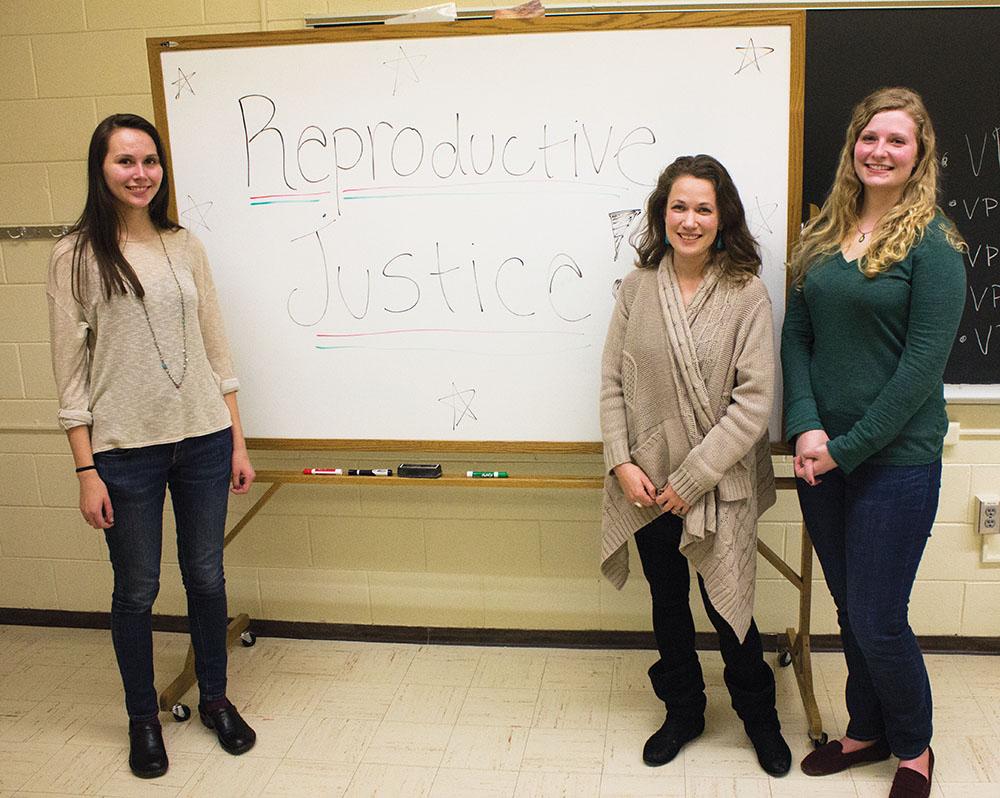A pair of students are in the process of forming an official club that focuses on the idea that all people have the right to make their own choices about their bodies, health care and the right time to raise a happy and healthy family.

Anna Lobastova, senior global studies major, and Maddie Majerus, senior political science major, are the founders of the Reproductive Justice club, which they hope to make official through Appalachian State University.
According to www.protectchoice.org, reproductive justice can be defined as the “complete physical, mental, spiritual, political, social and economic well-being of women and girls, based on the full achievement and protection of women’s human rights.”
Majerus said the club is very intersectional.
“Reproductive justice moves away from the typical pro-life, pro-choice argument because that argument really boils down to ‘Should abortion be legal and should we have access to abortion?’” Majerus said. “Reproductive justice focuses on [the question] ‘Are people able to raise a happy, healthy family at a time they choose?’”
The club will include activism and education. On the activism front, Majerus and Lobastova anticipate working with other clubs and organizations for their events, while also creating their own events and inviting the community to participate.
“Reproductive justice is a really huge umbrella term that can be really, really confusing to people,” Majerus said. “We were thinking about having several nights where we would have an issue and really talk about it, and that could range from anything like bingo or watching a documentary or having a presentation or guest speakers come in. We’re looking for a community based thing where we go and do things together, but also keep it educational.”
A central topic of interest for the club, particularly in the educational aspect, is pregnancy centers. Majerus cited the Hope Pregnancy Resource Center on Howard Street as an example.
“Crisis pregnancy centers pose as medical centers and they do not disclose to their patients that they are not medical centers; they do not disclose to their patients that they do not perform abortions or give abortion referrals,” Majerus said. “They get people coming in their doors thinking that it is an abortion clinic, so that they can convince them not to get an abortion and they do that through a variety of ways.”
According to www.choosehope.org, the Hope Pregnancy Resource Center website, during a visit to the center, all options for an unplanned pregnancy would be discussed.
“They are funded by our state, so your tax dollars are going toward funding crisis pregnancy centers,” Majerus said. “A lot of people don’t realize what they are, they are very convincing in being like, ‘we are a clinic for women and we talk about choice,’ when they don’t. They’re not forthright in what their actual goal is.”
Majerus said these types of clinics outnumber abortion clinics 8:1 in the state of North Carolina and mainly target women of color and college-aged students.
“I think this is really important to [Appalachian], specifically because we don’t have an abortion provider nearby,” Lobastova said. “If you call ASU Health Services and ask for information on an abortion referral, they actually send you to the CPC, which is on Howard Street.”
Lobastova and Majerus plan on opening the club to non-students, although those members will not be able to hold an administrative position with the club or vote.
“We want to make the club open to the community,” Lobastova said. “We want to take the education aspect to Boone because we don’t have reproductive access here.”
Story: Nicole Caporaso, Senior News Reporter
Photo: Halle Keighton, Photographer
